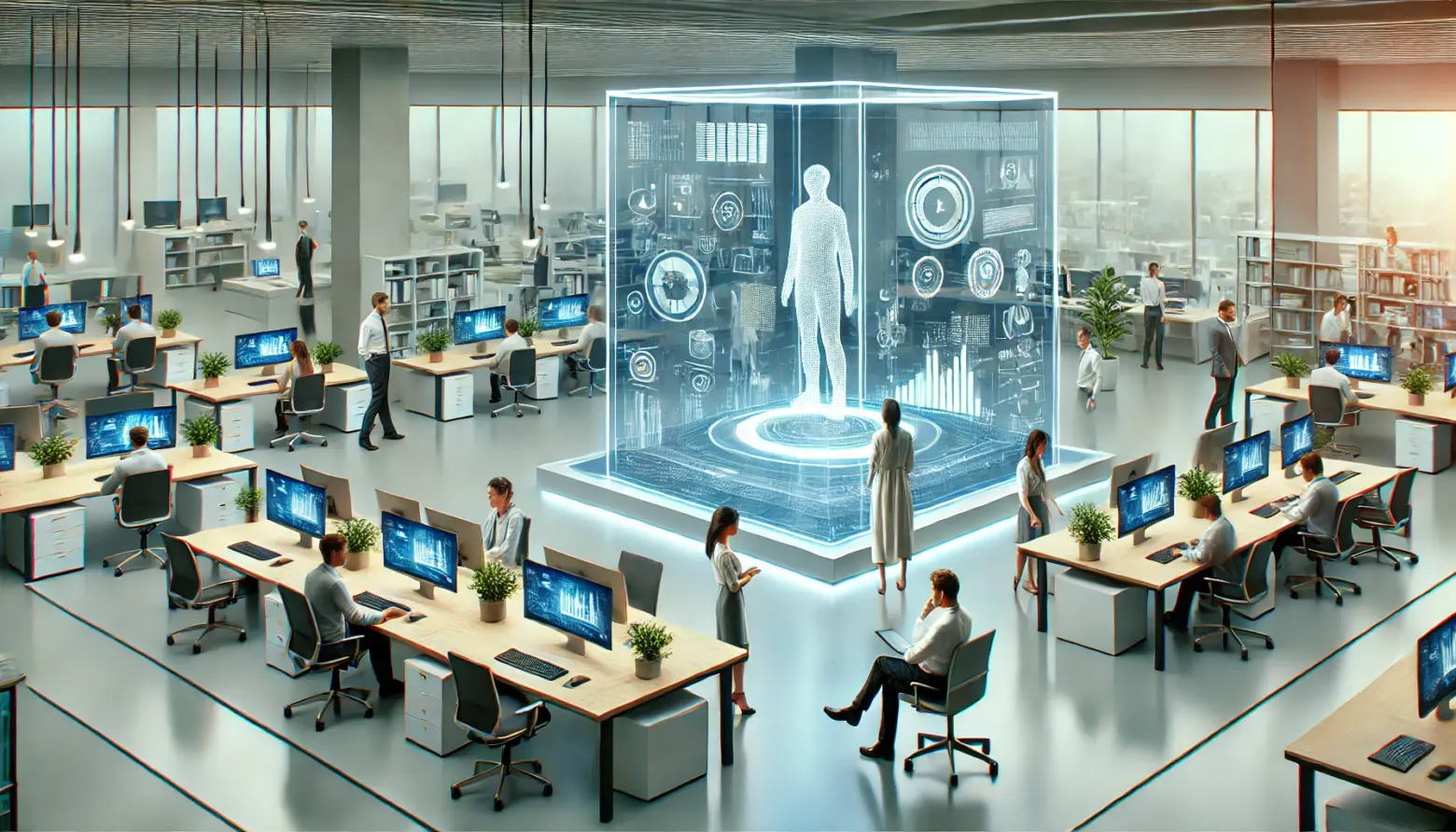First Line Software is a premier provider of software engineering, software enablement, and digital transformation services. Headquartered in Cambridge, Massachusetts, the global staff of 450 technical experts serve clients across North America, Europe, Asia, and Australia.
With the rise of digital technologies and the need for flexible content management, headless CMS solutions are becoming increasingly popular. These systems offer efficient solutions for creating and managing content, along with AI integration capabilities. Here are a few headless CMS examples to help you choose the right solution for your business.
Contentful
Contentful is a powerful and flexible headless CMS that provides extensive features for developers and content managers. It allows for easy content management through an intuitive interface and robust API. However, to fully leverage Contentful’s capabilities, a certain level of technical expertise is often required, especially when it comes to customization and integration.
Technical Features
- API-first approach facilitates integration with various systems and services.
- High scalability is suitable for both small projects and large enterprises.
- Modularity supports a component-based approach to content creation.
Crystallize
Crystallize is a headless CMS specialized for e-commerce, offering easy setup and robust tools for managing products and content. While it provides cutting-edge features specifically designed for online retail, it’s worth noting that Crystallize is a relatively new entrant in the CMS space. For businesses prioritizing a more established platform with a longer history, this may be an important consideration.
Technical Features
- Optimization for e-commerce with specialized features for product catalog management.
- Quick setup thanks to an intuitive interface and ease of use.
- High performance ensures fast response times and scalability.
DatoCMS
DatoCMS is a flexible and scalable headless CMS ideal for building modern web applications. It adapts seamlessly to changes and offers strong integration capabilities with various AI tools.
Technical Features
- Customizable content models: Allows for precise tailoring of content structures, such as landing pages, blog posts, and product pages.
- Powerful GraphQL API: Supports efficient data retrieval and real-time content updates across all platforms.
- Multilingual support: Comes with built-in features for managing and delivering content in multiple languages, making it suitable for global audiences.
Strapi
Strapi is an open-source headless CMS that has rapidly become popular and growing; it is particularly valued for its flexibility and developer-friendly approach.
Technical Features
- API-Driven and Highly Customizable: Strapi allows developers to build and manage content using RESTful and GraphQL APIs. It’s entirely customizable, allowing users to modify the admin panel, create custom plugins, and define unique content types.
- 100% JavaScript: Built entirely in JavaScript, Strapi supports integration with various front-end technologies like React, Vue, and Angular, making it an ideal choice for modern web development.
- Self-Hosting and Security: Strapi can be self-hosted, giving users complete control over their data and infrastructure. It also offers robust security features, including role-based access control and customizable authentication strategies.
Shopify
Shopify, traditionally known for its e-commerce capabilities, also offers headless CMS features. While these capabilities are robust within the context of Shopify’s ecosystem, they are primarily designed to complement its core e-commerce functionalities. This platform is particularly useful for businesses looking to create unique, high-performing online stores and are already heavily invested in Shopify’s ecosystem.
Technical Features
- Hydrogen and Oxygen: Shopify provides a React-based framework (Hydrogen) for building custom storefronts and a global hosting solution (Oxygen) for deployment. This combination allows for fast, flexible development and scalability.
- GraphQL Storefront API: Enables seamless integration with various frontend frameworks and backend systems, ensuring efficient data retrieval and updates.
- Omnichannel Selling: Supports selling across multiple digital platforms while managing everything from a single backend.
AI Integration
All the reviewed headless CMS platforms support AI integration, opening up numerous possibilities for automating and optimizing content management processes:
- Contentful: Supports AI Content Generator and AI Image Generator, enabling automation of text and visual content creation and personalizing recommendations for users.
- Crystallize: AI integration automates product management and personalized recommendations, which is particularly useful for e-commerce platforms.
- DatoCMS: Utilizes AI for content analysis and optimization, supporting multilingual content and localization, essential for international companies.
- Strapi: Supports integration with various AI tools through its API-first architecture, allowing for personalized content delivery and enhanced user experiences.
- Shopify: Uses AI to analyze user behavior and provide personalized recommendations, improving user experience and increasing conversion rates.
When Customization of Headless CMS is Necessary
While headless CMS platforms offer an easy start, customization is often needed to meet specific business needs. Here are some real-world scenarios where customization is essential:
- Integration with ERP and CRM Systems: Many companies need to integrate their CMS with internal systems to improve workflows and data management. For example, integrating with an ERP system can automate order and inventory management processes.
- Personalized Marketing Campaigns: If your business requires personalized marketing campaigns, customizing the CMS can help analyze user behavior and deliver relevant content.
- Managing Multilingual Content: For companies operating in international markets, ensuring quality translation and localization of content is crucial. AI-powered translation tools can significantly simplify this process.
- Performance Optimization: If your site experiences high traffic, customization can help optimize performance and ensure stable operation under heavy loads.
Any headless CMS, whether it’s Contentful, Shopify, Crystallize, or DatoCMS, requires some level of customization to meet specific business needs and maximize AI integration. At First Line Software, we understand that each company is unique. Our experts are ready to help you with the setup, integration, and customization of your chosen solution. Reach out to us, and we will bring your ideas to life and enhance the performance of your digital product.
Learn more about Digital Experience Practice at First Line Software


 Clinovera
Clinovera



